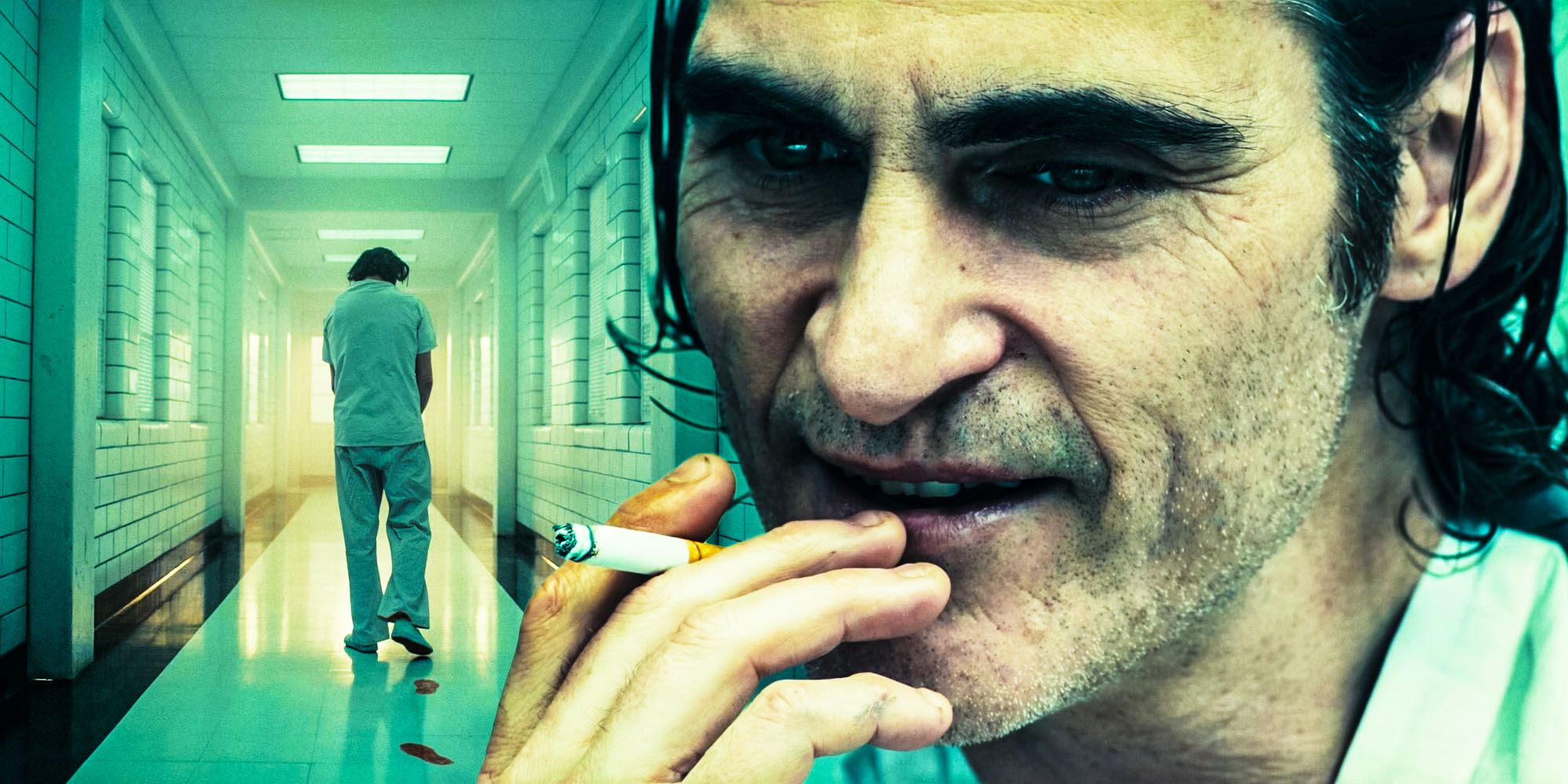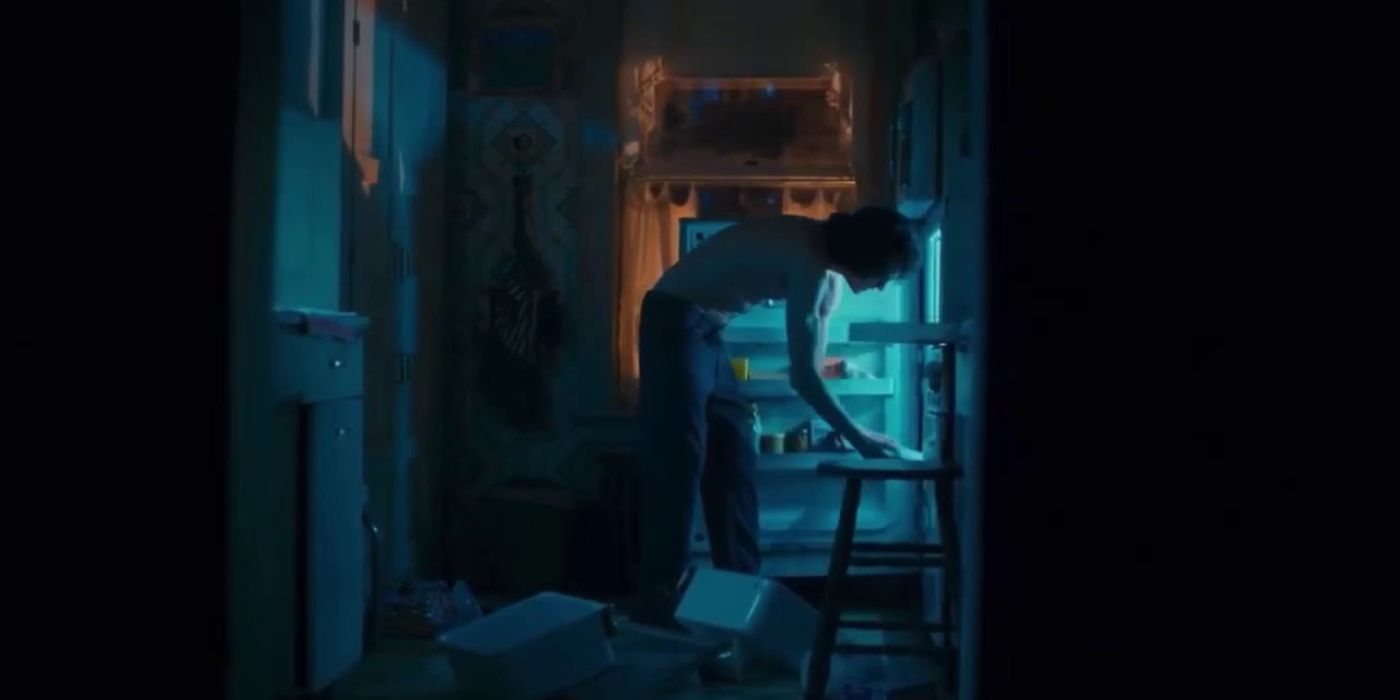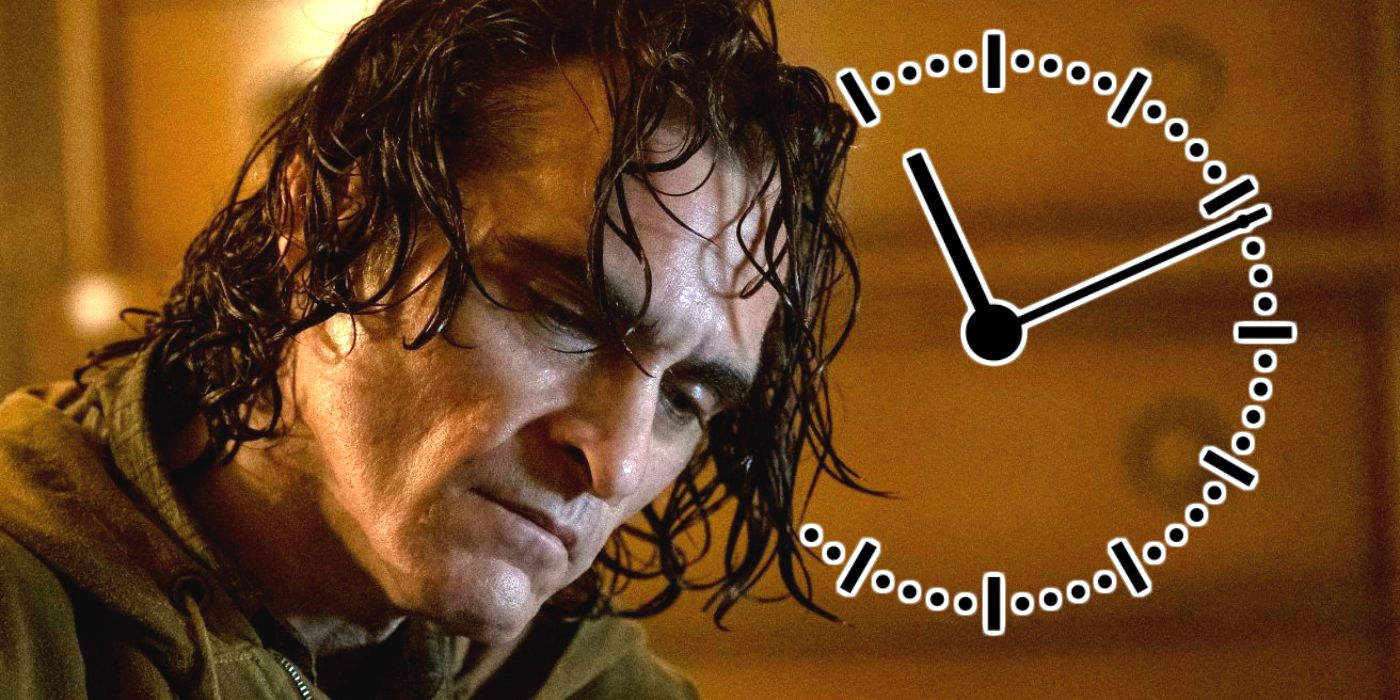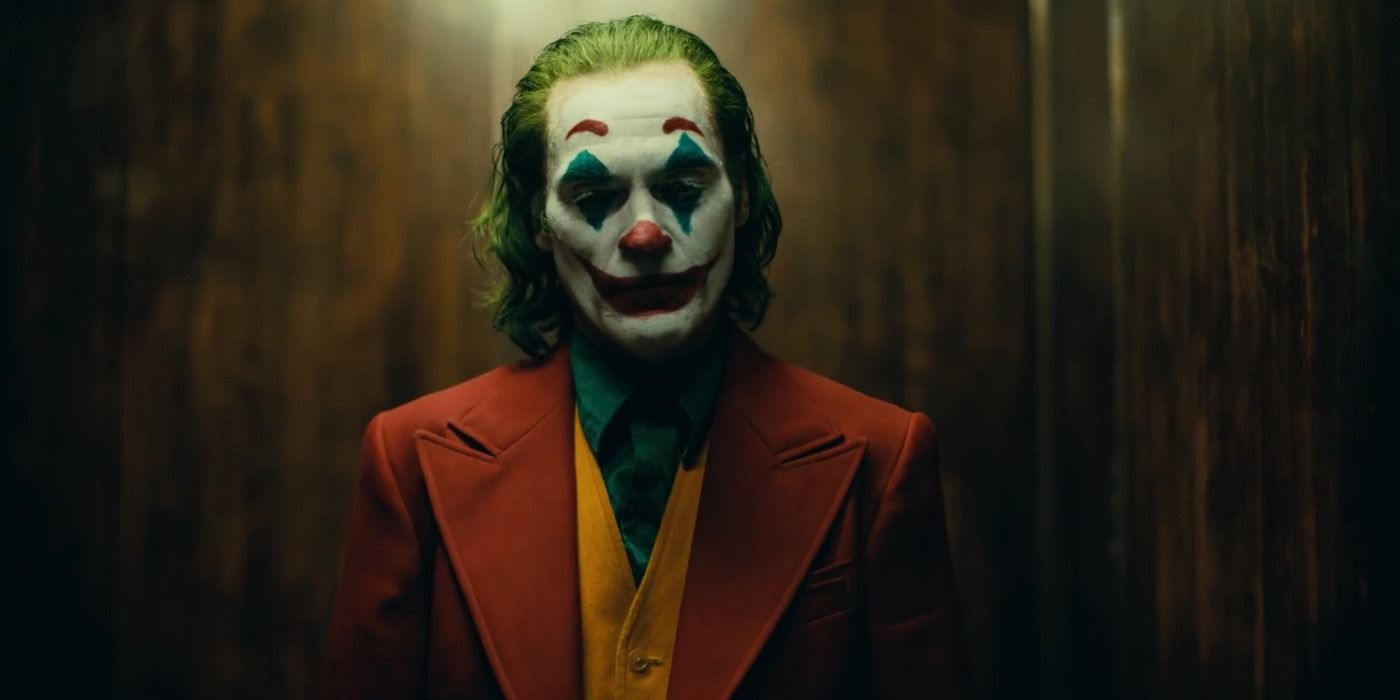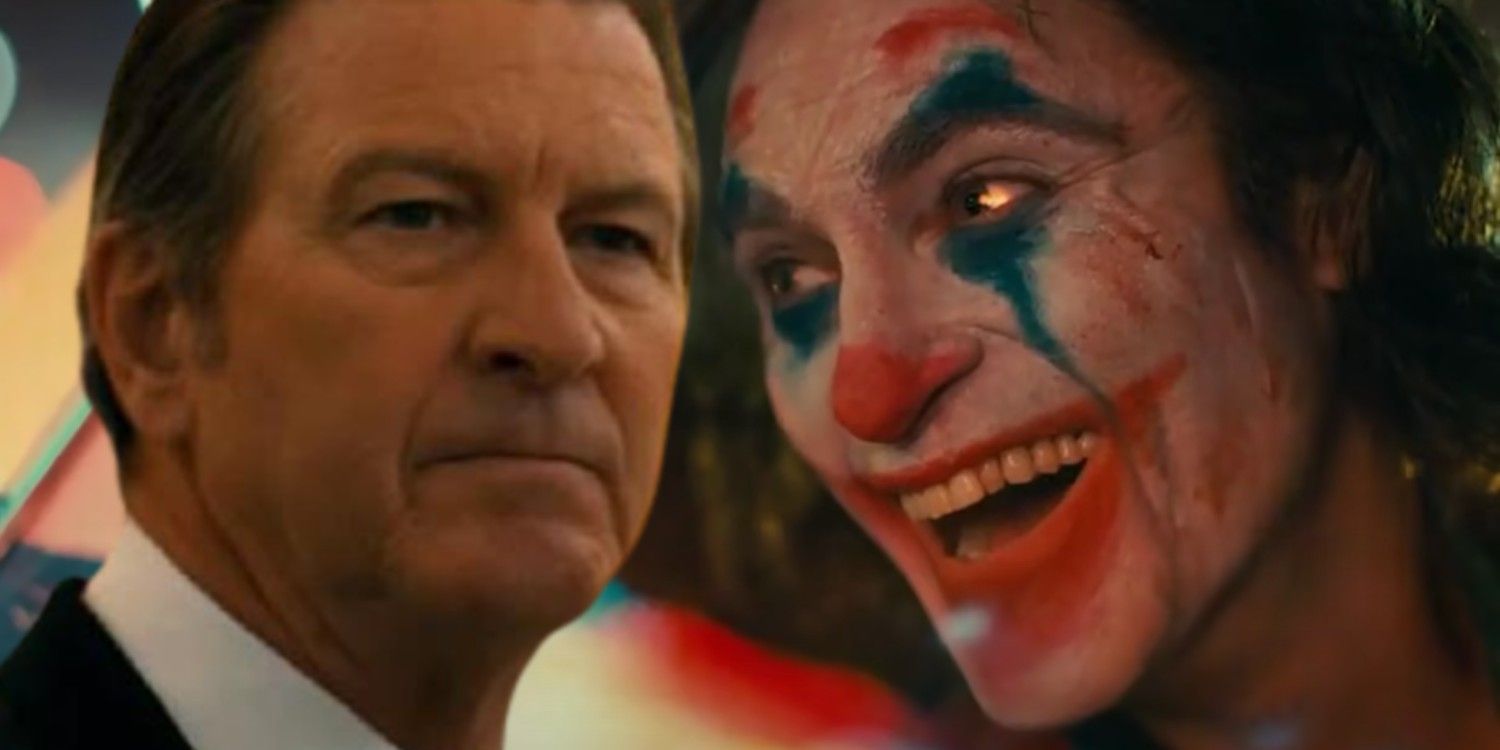Trigger warning: Mild references to suicide.
Arthur Fleck appears to transform into Gotham's most infamous villain in Joker but, in theory, he may not have even left Arkham Asylum and the whole movie may have been a fantasy in his head. Out of all of Batman's expansive rogues' gallery, there's clearly one bad guy that stands above the rest as the Caped Crusader's nemesis: the Joker. The Clown Prince of Crime is a threat so big that even most of Gotham's other supervillains are scared to get on his bad side. Joker may look like a clown, but he's definitely more akin to Pennywise than Bozo.
That said, The Joker rarely appears when not opposite Batman, and he's usually not the focus of the story. After all, most portrayals of Joker keep his background shadowed in mystery, most famously Heath Ledger's portrayal in The Dark Knight, which at times felt more like a supernatural boogeyman than a normal criminal. Joker isn't the kind of character one would ever expect to be the subject of a movie all his own, but that's exactly what director Todd Phillips gave the world with 2019's acclaimed movie Joker.
Headlined by Joaquin Phoenix in an Oscar-winning performance, Joker took audiences inside the mind of the infamous killer, exploring the events that led an already unstable man to truly go over the edge into madness. On a superficial level, Joker seems to end rather well for Arthur, all things considered. He may be locked up, but he's also become a symbol of chaos, and his actions led to the murder of Bruce Wayne's parents. Yet, that almost feels too perfect of a conclusion for Arthur. In fact, there's lots of evidence pointing to not just the ending, but the entire movie being all in his head, a fantasy he plays out from his room in Arkham Asylum. Here's the theory explained.
Arthur's Fridge Hints At Joker's Arkham Twist
Early on in Joker, it's mentioned that Arthur Fleck had previously been institutionalized inside Arkham Asylum. One hint at the idea that Arthur was actually locked inside Arkham for the whole movie is the weird scene where Arthur climbs inside the refrigerator, which seemingly makes him feel safe and sheltered from the cruel outside world. This could be read as a bit of symbolism, with Arthur admitting that he feels safest inside his padded cell at Arkham, which is further sold by the fact that the fridge Arthur Fleck crawls inside and his cell at Arkham share the visual detail of a little window on the front.
As meticulously crafted a film as Joker is, it's very hard to imagine that visual similarity between the fridge and Arthur's cell wasn't a purposeful creative choice. Some have theorized that perhaps Arthur actually killed himself by climbing inside the freezer, but considering how he evolved through the movie, it wouldn't necessarily have made narrative sense for him to take his own life. Instead, it's likely meant to symbolize Arthur's mind retreating into a space where it felt comfortable. Along those lines, it's quite possible the flashback that's shown of Arthur locked inside his Arkham Asylum cell during his previous commitment was actually the first glimpse at his present-day reality.
The Clocks In Joker Suggest Something Is Wrong
Another small but crucial hint at Joker's events being all a fantasy conjured up by Arthur Fleck is the film's clocks. Clocks are visible in several scenes, and bizarrely, all of them visibly read a time of 11:11. In numerology, 11:11 is often seen as an important and powerful number, and some also see it as a lucky number. While the passage of time in Joker is by no means clearly spelled out, which makes sense since Arthur's fake relationship with neighbor Sophie explicitly shows him to be an unreliable narrator, the chances every clock would read the same time during all those events are all but nil.
Yet, if what the audience is seeing in Joker is simply a fabrication by Arthur, it makes sense that his mind might forget to fill in little details like that, and assign a placeholder number to the clocks. What's more, perhaps 11:11 has some personal significance to Arthur that he doesn't divulge. Considering that, for the purposes of this theory, Arthur has been locked up inside Arkham for an unclear number of years, it's also possible that time has lost meaning for Arthur, as each day blends together in his mind.
Joker's Outfit Matches Arkham's Decor
Joker's outfit in the 2019 movie is an interesting mix in that it somewhat calls back to prior ensembles worn by the character, but is in some ways quite different. Noticeably, though, Arthur's vest is a mustard yellow, and the same color is seen painted on the walls of Arkham's corridors when Arthur visits looking for answers about his mother Penny Fleck. Again, when a movie has clearly been made with this much exacting detail, it's unlikely that that particular choice didn't mean something.
A further tip-off to Arthur's true reality is that when he's seen at the very end, inside Arkham, the hospital's corridors are a clean, bright white, much different from the yellow hallways seen before. That's likely because this Arkham is the real one, and the other was a scarier, more rundown version of the place that Arthur used to embellish his fantasy. The real Arkham Asylum is actually taken care of it seems, while the one in Arthur's head is instead the crumbling, dirty version usually seen in Batman stories. Notably, when Arthur is shown in Arkham during the purported flashback mentioned earlier, his cell is also shown to be bright white, suggesting it was a brief glimpse into the real world.
Joker's Final Wayne Fantasy Is Impossible
Even if one believes that Arthur did become Joker and kill many people, inspiring a chaotic rampage through Gotham, there's an odd hole in that take. Nearly the entirety of Joker is seen through Arthur's point of view. He's in every scene, and his perspective on every event shapes what's shown. That's true except for near the very end when a Joker disciple shoots and kills Thomas and Martha Wayne. The sequence is framed almost as if it's Joker watching the murders happen, which he obviously couldn't be since he was shown to be knocked out in a police car at that time.
During the final scene with the psychiatrist, Joker also sees an image in his head of Bruce Wayne standing over the bodies of his parents, which again, he wasn't psychically there to see. Add that to just how perfect everything turns out for The Joker - he's got followers, he's sparking a revolution, his seeming absentee father Thomas Wayne is gunned down - and it becomes fully clear just how much of a fantasy Joker's whole story was. Of course, Arthur Fleck would imagine himself as the cause of Batman's creation as it would make him feel important and give him a target for his rage. The real question is whether or not Arthur actually escaped from Arkham after killing his psychiatrist at the end of the film, and if so, if he'll try to make his fantasy into reality. Perhaps Joker 2 will explain for sure.

